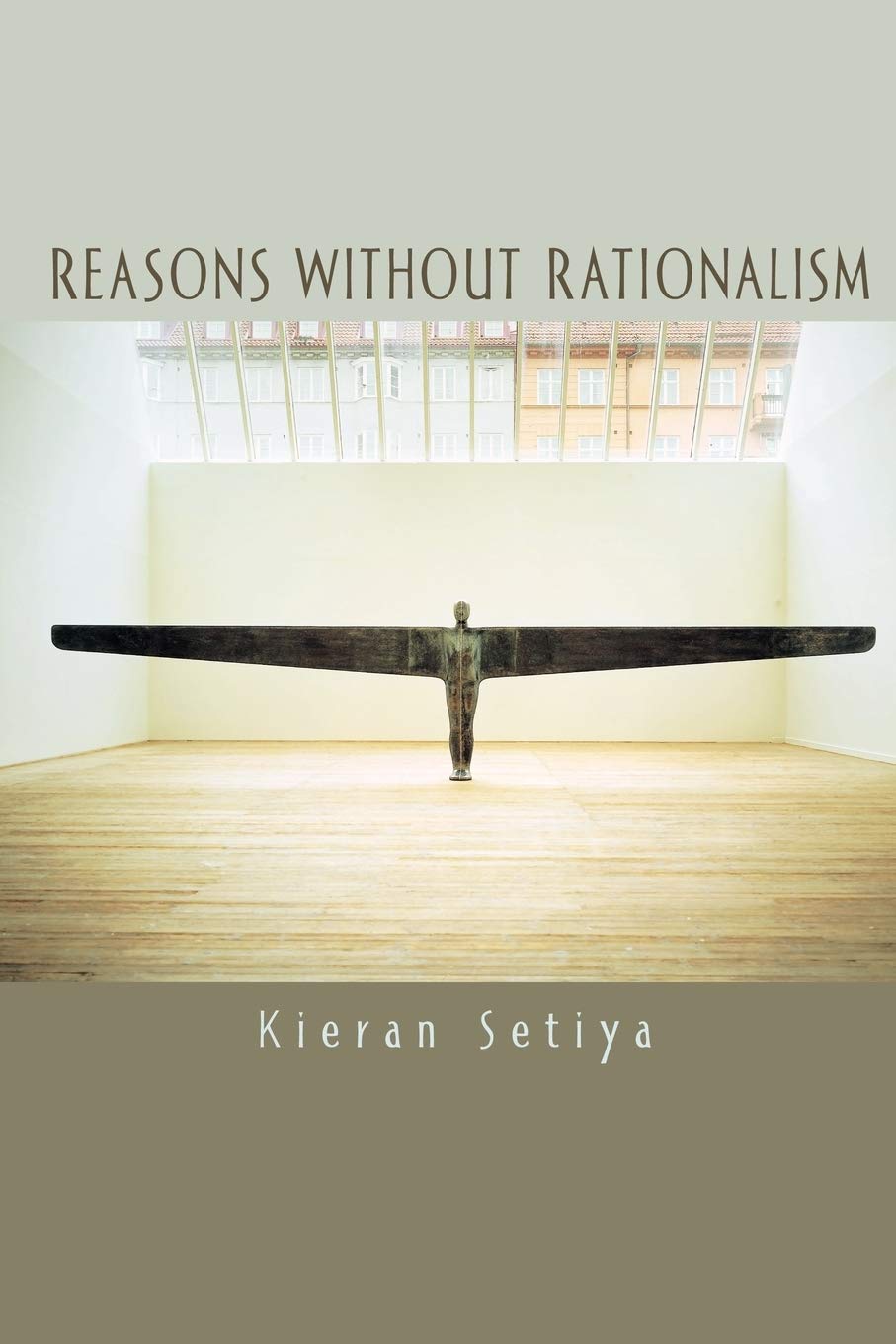Reasons without Rationalism
Reasons without Rationalism is backordered and will ship as soon as it is back in stock.
Couldn't load pickup availability
Genuine Products Guarantee
Genuine Products Guarantee
We guarantee 100% genuine products, and if proven otherwise, we will compensate you with 10 times the product's cost.
Delivery and Shipping
Delivery and Shipping
Products are generally ready for dispatch within 1 day and typically reach you in 3 to 5 days.
Book Details
-
Author: Kieran Setiya
-
Brand: Princeton University Press
-
Binding: Paperback
-
Number of Pages: 144
-
Release Date: 21-07-2010
-
EAN: 9780691146522
-
Package Dimensions: 9.2 x 6.1 x 0.3 inches
-
Languages: English
About The Book
In Reasons without Rationalism, Kieran Setiya tackles a central dilemma in modern philosophy: the question of why we should be moral and the doubts surrounding the rational authority of moral virtue. Setiya argues that the doubts people have regarding moral virtue are based on a fundamental mistake. He asserts that the "should" of practical reason is inseparable from the virtues of character—such as justice and benevolence—and the reasons we have to act are deeply tied to the virtues that make us sensitive to moral considerations.
Setiya presents a novel framework for understanding practical reason, challenging the prevalent form of ethical rationalism that suggests reasons for action derive purely from the nature of intentional action. He critiques this view, which claims we act "under the guise of the good," and exposes its flaws by drawing attention to issues in intention and motivation. Setiya’s conclusion is that, because ethical rationalism fails, virtue theory is the correct account of moral action: we cannot be fully good without perfecting our practical reason, and we cannot perfect practical reason without being good.
Addressing critical issues in the psychology of virtue and the philosophy of action, Reasons without Rationalism is a must-read for those interested in ethics, rationality, and the philosophy of mind.
Salient Features:
-
Challenges popular doubts about the rational authority of moral virtue
-
Proposes a new framework for understanding practical reason rooted in virtue theory
-
Critiques ethical rationalism and explains why virtue theory is a better account of moral action
-
Engages with topics in the psychology of virtue and the philosophy of action





